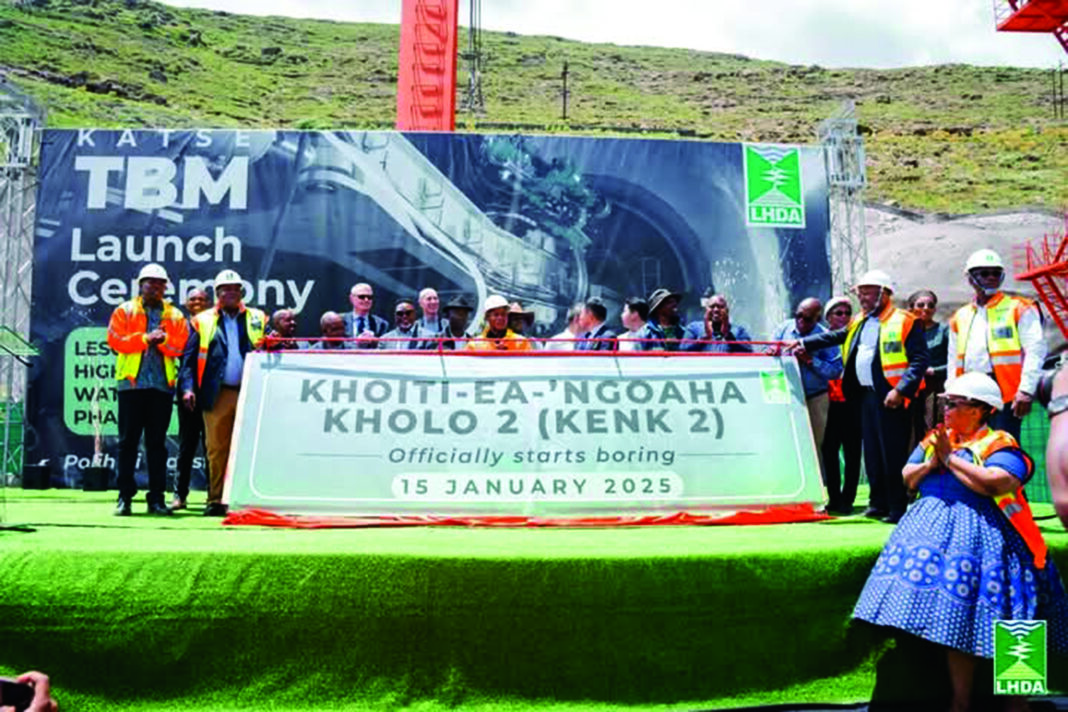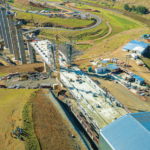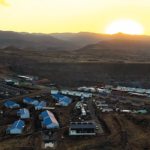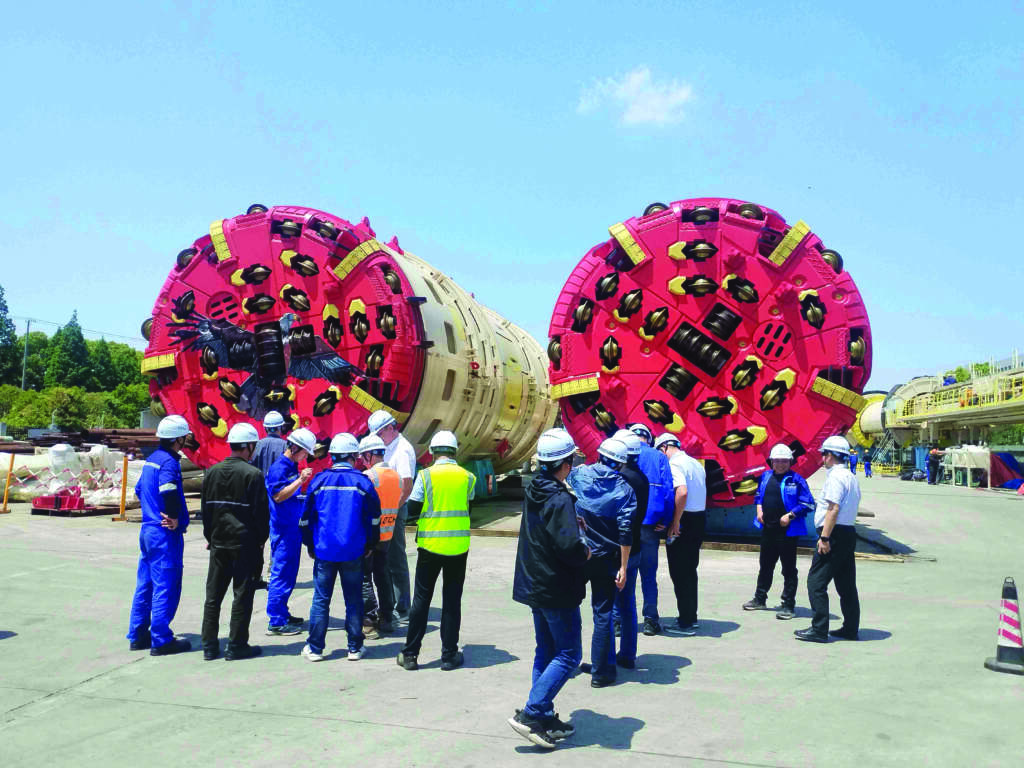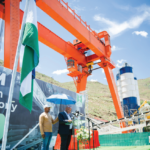The boring of the 38-kilometre Polihali Transfer Tunnel officially began this week, marking a significant milestone in the implementation of Phase II of the bi-national Lesotho Highlands Water Project (LHWP).
The commencement follows the assembly and naming of two Tunnel Boring Machines (TBMs), which arrived in Lesotho in September 2024.
Manufactured by CCCC Tianhe of China, the double-shielded TBMs were specifically designed to excavate the tunnel from both ends, enabling the gravity-driven transfer of water from the Polihali reservoir to the Katse reservoir.
Speaking at the launch and naming ceremony of the TBMs held at Ha-Bereng in Leribe this week, Lesotho Highlands Development Authority’s (LHDA) Chief Executive, Tente Tente, shared the project’s achievements thus far.
The TBMs were named “Khoiti-ea-ngoaha-kholopeli” following a national call for public suggestions. The name, which translates to “wild rat” symbolises the TBM’s underground drilling capability and commemorates Basotho’s 200-year bicentennial celebration.
Tente revealed that LHWP II has created over 11,000 jobs for Basotho, with 7,491 skilled and 3,772 unskilled positions. Additionally, M120 million has been paid in compensation to 1,736 households.
He further highlighted other key developments, including the completion of housing and office facilities, significant progress on access roads connecting Leribe, Thaba-Tseka, and Mokhotlong, and the construction of the Senqu Bridge.
He also noted that a major milestone was reached in December with the completion of all 15 piers of the Senqu Bridge, while excavation and rockfill placement at the Polihali Dam are ongoing.
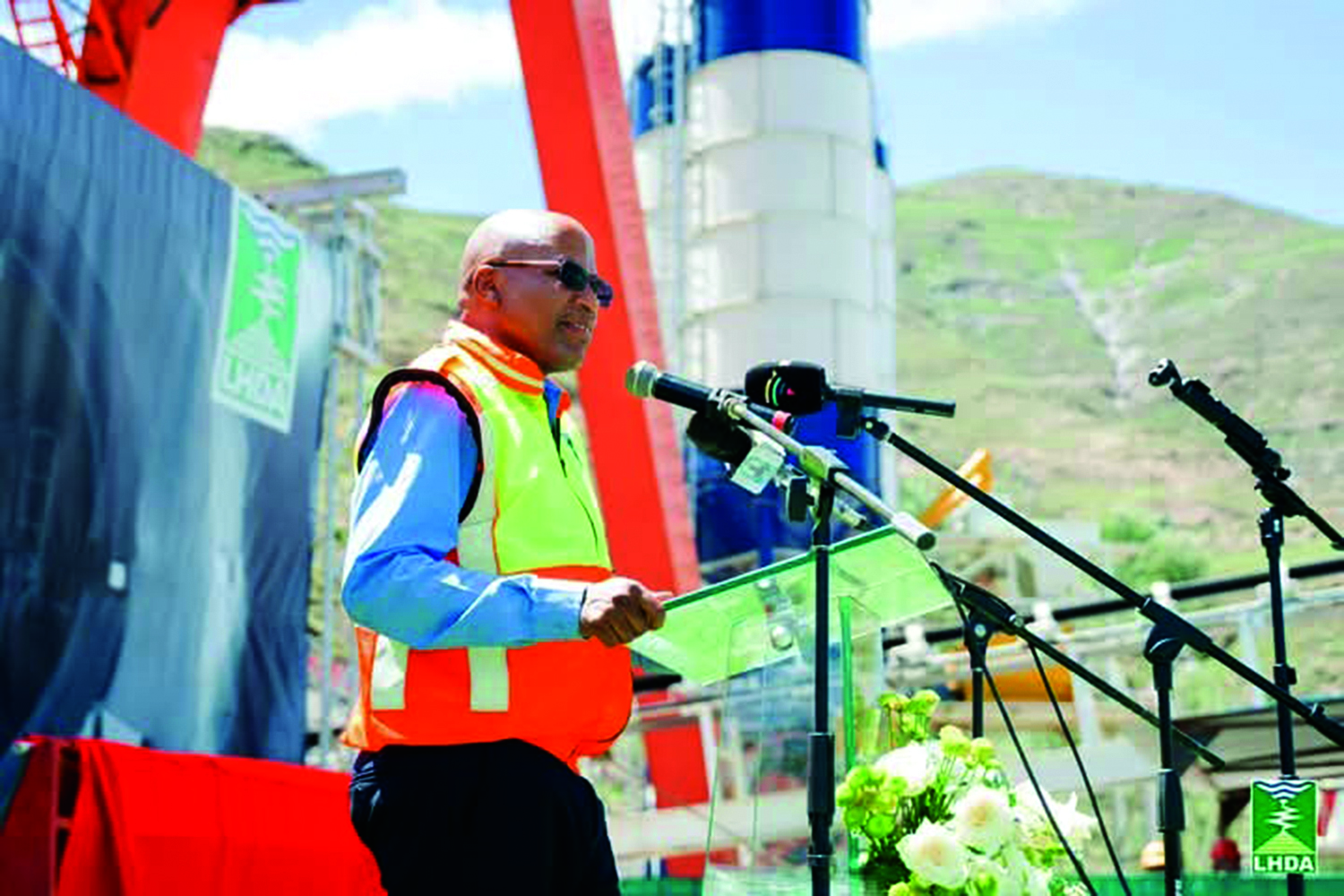
“Progress on the transfer tunnel has been remarkable,” Tente said. “In August, we achieved a breakthrough with the connection of the upper and lower intake tunnels of Polihali.”
“We believe that all Phase II contractors and consultants and the men and women who are toiling in the harsh conditions of the highlands, will continue to make us proud as they work towards making sure that we achieve our timelines to deliver this important project for the two nations,” Tente emphasised.
Tente also acknowledged the challenges faced but praised the efforts to collaborate with local communities and implement livelihood activities. He announced the launch of the Skills Testing and Accreditation Programme, which will certify the skills of candidates and open up employment opportunities across Lesotho and the SADC region.
I am sure you will be pleased to note that this year after months of planning we will be launching the Skills Testing and Accreditation programme which evaluates, accredits, and certifies the skills of candidates, thus opening new employment opportunities in semi-skilled categories in Lesotho and across the SADC region,” Tente added.
On behalf of Kopano Ke Matla Joint Venture (KKM-JV), contractor representative Lei expressed gratitude to the Lesotho government, local communities, and the Chinese Embassy for their support.
He highlighted the employment of over 1,000 villagers from surrounding areas and the contributions of workers from Lesotho, South Africa, and 13 other countries.
“This has enabled the project to proceed smoothly and efficiently. Once again, we are grateful for the strong support from the Chinese Embassy. During the project implementation, the embassy has been closely following the project progress, providing us with many valuable suggestions and a solid backup, creating a favorable external environment for the successful implementation of the project. Secondly, we must not forget the support from the surrounding communities.
“More than 1,000 villagers from the surrounding areas have been employed, making indelible contributions to the achievements of the project so far. I would like to pay the highest tribute to the hard work of all employees. Most of our construction employees are from Lesotho and South Africa. With their eager anticipation for the development of their hometowns, they have dedicated themselves wholeheartedly to the project construction. At the same time, there are also management personnel and technicians from thirteen countries,” Lei explained.

During the ceremony, Minister of Local Government, Chieftainship, and Police, Lebona Lephema, speaking on behalf of the Prime Minister, emphasised the importance of the LHWP in bolstering economic development for both Lesotho and South Africa.
“At the heart of the project is the improvement of the livelihoods of our citizens. It is crucial for LHWP to never overlook the significance of restoring the lives of individuals directly impacted by this project. It is imperative that these individuals are treated with the utmost respect and compassion,”
“Neglecting to safeguard their human rights would not only undermine the dignity of those affected, but will also tarnish the reputation of both countries on the global stage. Such a failure could lead to a serious moral judgment from the international community, putting into question the integrity and values we uphold,” Lephema explained.
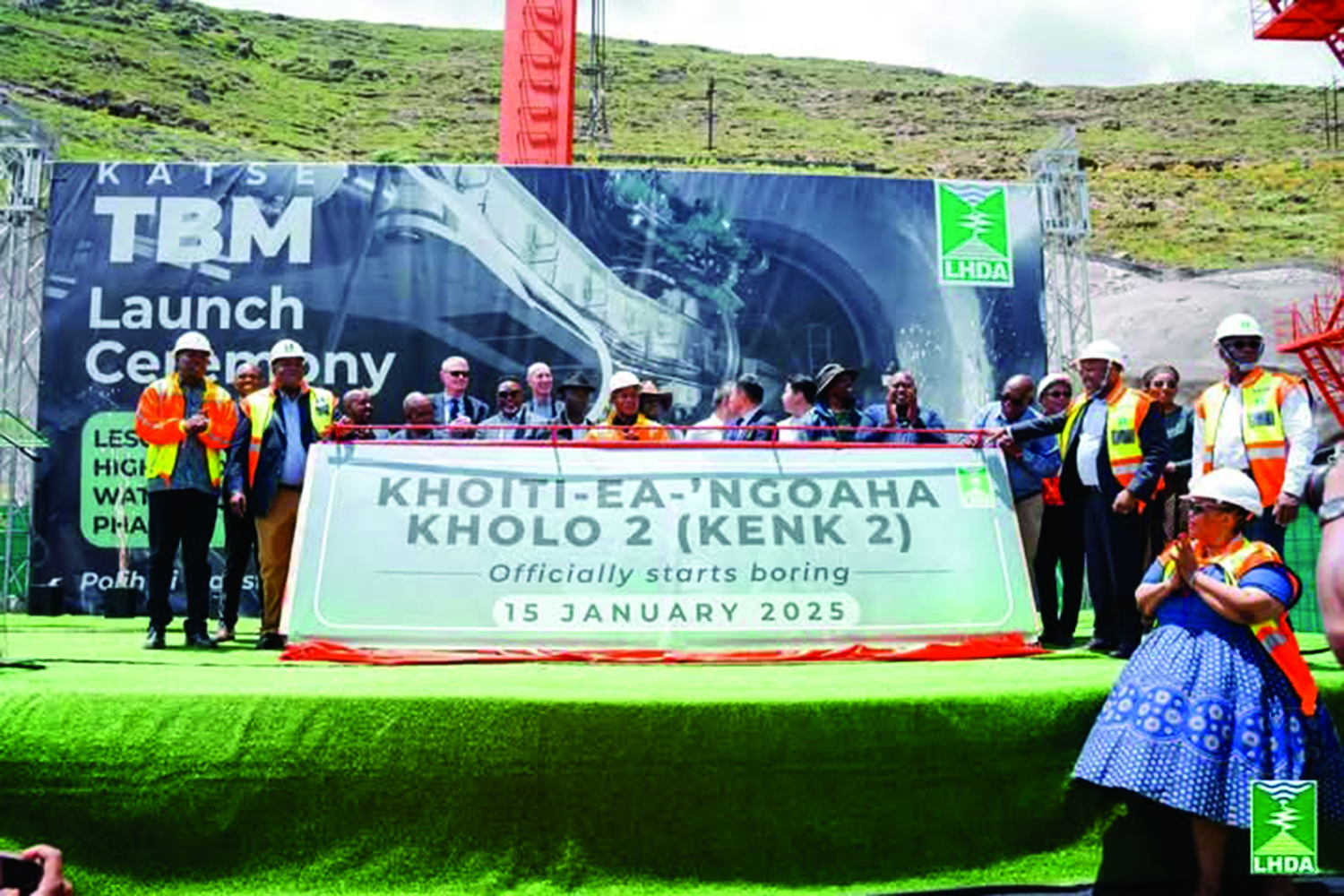
Summary
- “We believe that all Phase II contractors and consultants and the men and women who are toiling in the harsh conditions of the highlands, will continue to make us proud as they work towards making sure that we achieve our timelines to deliver this important project for the two nations,” Tente emphasised.
- I am sure you will be pleased to note that this year after months of planning we will be launching the Skills Testing and Accreditation programme which evaluates, accredits, and certifies the skills of candidates, thus opening new employment opportunities in semi-skilled categories in Lesotho and across the SADC region,” Tente added.
- During the project implementation, the embassy has been closely following the project progress, providing us with many valuable suggestions and a solid backup, creating a favorable external environment for the successful implementation of the project.

Seabata Mahao is a general news reporter with special focus on Business and Sports. Started working at Newsday in 2021. Working in a team with a shared goal is what I enjoy most and that gives me the motivation to work under any environment leading to growth.


